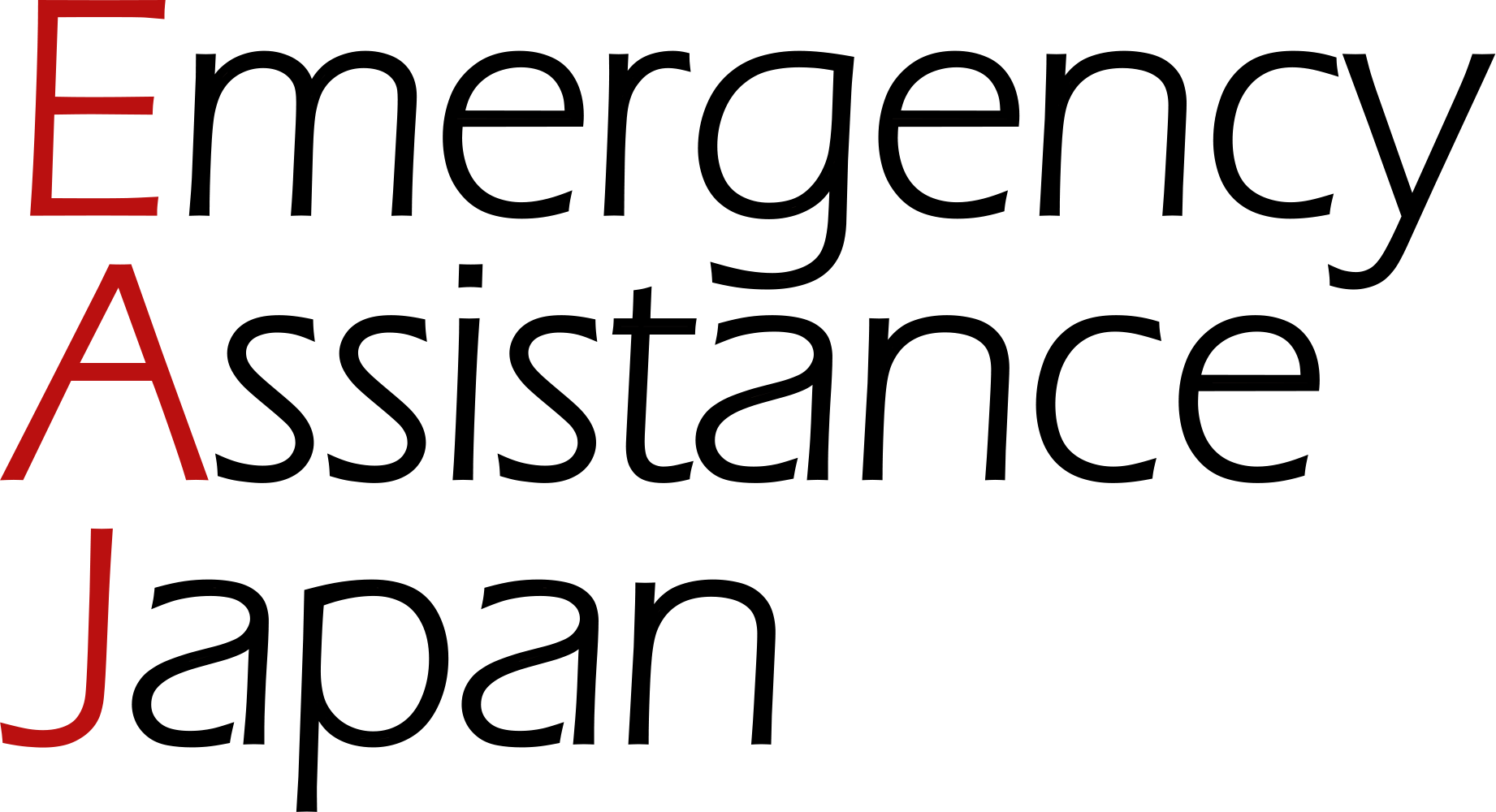医療機関一覧
- ホーム
- 医療機関一覧
ご協力いただいている主な医療機関は次の通りです。
掲載は都道府県別となっており、同一都道府県に複数の医療機関がある場合には、まず入院施設がある医療機関を病床数順に掲載し、それ以外の専門クリニック等をあいうえお順に掲載しています。
本ページに掲載していない医療機関につきましても問い合わせが可能です。 詳しくは問い合わせフォームよりお問い合わせください。
東京都
-
東京大学医学部附属病院
国内最高峰の大学病院 国際診療部が海外からの患者様の受け入れをサポート
東京都文京区本郷7-3-1 公式サイト
疾患全般 -
慶応義塾大学病院
日々外来3,000人入院800人、研究や開発などの機能も有し、先進医療の提供も実施
東京都新宿区信濃町35番地 公式サイト
疾患全般/人間ドック -
虎の門病院
人間ドック、精密検査、治療をシームレスに、万一の再発検査・治療・緩和ケアもフォロー
東京都港区虎ノ門2-2-2 公式サイト
がん全般/B型肝炎/C型肝炎/その他肝疾患 -
東京科学大学病院
医学と歯学の融合により「頭から足先まで」全身を診ることができる国立大学病院
東京都文京区湯島1-5-45 公式サイト
疾患全般/膠原病/リウマチ/潰瘍性大腸炎/眼科/希少疾患/スポーツ医学/高気圧酸素治療 -
がん研有明病院
日本初のがん専門病院、年間のがんの手術数は国内トップレベル
東京都江東区有明3-8-31 公式サイト
がん全般の診断・治療/がんを中心とした健診メニュー -
NTT東日本関東病院
在日米軍や各国大使館との連携により外国人患者受入に豊富な実績を持つ総合病院
東京都品川区東五反田5-9-22 公式サイト
がん全般、人間ドック -
国立がん研究センター中央病院
日本のがん診療を担う中枢病院として、新たな治療法の開発、様々な研究と診療を実践
東京都中央区築地5-1-1 公式サイト
がん全般/肺がん(日本で最多手術数)/大腸がん/胃がん/希少がん -
聖路加国際病院
40診療科、520病床 高いホスピタリティで外国人患者様の受け入れは年間約3万人以上
東京都中央区明石町9-1 公式サイト
疾患全般/人間ドック -
国立成育医療研究センター
小児と周産期医療が専門の総合病院 世界各国から患者さんが集まる
東京都世田谷区大蔵2-10-1 公式サイト
小児対象の高度医療全般/臓器移植/遺伝子細胞治療/小児がん治療/希少・難治性疾患 -
総合東京病院
南東北グループの経営する先進医療・人間ドック・がん医療を提供するクリニック
東京都中野区江古田3-15-2 公式サイト
人間ドック/PET-CT/脳ドック/肺ドック/子宮がん・乳がん検診/骨密度ドック/がん治療 -
榊原記念病院
心臓病・高血圧・血管病・心臓リハビリテーション等に実績のある循環器専門病院
東京都府中市朝日町3-16-1 公式サイト
心臓病/高血圧/血管病/心臓リハビリ -
東京高輪病院
東京の好立地に位置し、海外から人間ドック・健康診断の受診者様を受け入れ
東京都港区高輪3-10-11 公式サイト
人間ドック -
北原国際病院
海外にも展開する脳神経疾患専門病院で、救急、手術、リハビリまで一貫した医療を提供
東京都八王子市大和田町1-7-23 公式サイト
脳疾患全般/心筋梗塞/狭心症/不整脈/心不全/血栓回収療法/リハビリ -
伊藤病院
甲状腺疾患専門病院 1937年の開設以来常に最新の医療技術、医療機器を提供
東京都渋谷区神宮前4-3-6 公式サイト
橋本病/バセドウ病/甲状腺腫瘍/亜急性甲状腺炎/単純性びまん性甲状腺腫 -
稲波脊椎・関節病院
脊椎疾患分野で日本トップクラスの手術実績を誇る岩井整形外科内科病院の新病院
東京都品川区東品川3-17-5 公式サイト
椎間板・頸椎ヘルニア/腰部・頸部脊柱管狭窄症/股関節手術/人工膝関節置換術 -
岩井整形外科病院
整形外科分野の高度治療を実施する専門病院 脊椎疾患の内視鏡下手術件数日本一
東京都江戸川区南小岩 8-17-2 公式サイト
椎間板・頸椎ヘルニア/腰部・頸部脊柱管狭窄症/股関節手術/人工膝関節置換術 -
四谷メディカルキューブ
古くからPET/CT検査を導入し、導入以来18年間で13万5千件の検査実績
東京都千代田区二番町7-7 公式サイト
人間ドック/PET-CT/婦人科疾患/手の外科 -
KYBクリニック
自己免疫性疾患等に幹細胞治療を提供、順天堂大学病院での検査や生物製剤の提供も可能
東京都港区赤坂2-5-7渡辺商事赤坂ビル6F 公式サイト
関節リウマチ/膠原病/自己免疫性疾患 -
修琴堂大塚医院
1931年創業の漢方専門医院 日常の不定愁訴からがん等の疾患まで高品質の生薬で治療
東京都新宿区四谷三栄町13-18 公式サイト
不定愁訴、疾患全般/漢方治療 -
瀬田クリニック東京
国内初のがん免疫細胞治療専門の医療機関 様々な免疫細胞治療を提供
東京都千代田区神田駿河台2-1-45 公式サイト
肺がん/大腸がん/膵臓がん/胃がん/乳がん/卵巣がん/子宮がん/肝臓がん/食道がん/前立腺がん -
聖路加メディローカス
日本ではじめて人間ドックを行った聖路加国際病院の附属施設
東京都千代田区大手町1-9-7 公式サイト
SAS/がん検診/PET-CT/女性向け検診/禁煙外来 -
東京内視鏡クリニック
大腸がん検査の名医工藤進英教授が特別顧問、拡大内視鏡を用いた質の高い検査を行う
東京都新宿区西新宿7-10-1 4F 公式サイト
大腸がん/大腸内視鏡検査/食道・胃内視鏡検査/全例AI(EndoBRAIN-EYE)併用 -
藤田医科大学羽田クリニック
羽田空港至近、先端医療や人間ドックを提供
東京都大田区羽田空港1-1-4羽田イノベーションシティZONE A 公式サイト
精密健診/がんゲノム医療/再生医療/高度生殖医療/先端リハビリテーション -
むくみクリニック
LVA(リンパ管静脈吻合)手術によるリンパ浮腫治療を専門とするクリニック
東京都渋谷区代々木1-35-3 3階 公式サイト
リンパ浮腫/蜂窩織炎/むくみ/リンパ管静脈吻合術/LVA手術 -
粒子線がん相談クリニック
重粒子線治療のセカンドオピニオン外来が受けられるクリニック
東京都千代田区紀尾井町4-1ホテルニューオータニガーデンタワー1F 公式サイト
重粒子線がん治療/セカンドオピニオン -
東京労災病院
(独立行政法人 労働者健康安全機構)羽田空港に最も近い総合病院
東京都大田区大森南4-13-21 公式サイト
心疾患/神経疾患/肺疾患、腸疾患/泌尿器疾患/整形外科疾患/人間ドック
北海道
-
北海道大学医学部附属病院
北海道札幌市にある国立大学附属病院で、陽子線治療センターを有する
札幌市北区北14条西5丁目 公式サイト
疾患全般/がん/陽子線治療
青森県
-
八戸平和病院
尿路結石症治療の第一線病院として20年で4,000例以上の手術実績を誇り、日本初導入のツリウムファイバーレーザー活用で短時間手術と高い結石消失率を実現
青森県八戸市湊高台2-4-6 公式サイト
尿路結石症(腎結石・尿管結石)/前立腺肥大症/透析治療
山形県
-
山形大学医学部附属病院
重粒子線治療、胸腔鏡下肺がんや内視鏡下中耳疾患の手術等で治療実績を上げる
山形市飯田西2-2-2 公式サイト
疾患全般/重粒子線治療/前立腺がん/肝臓がん/膵臓がん/頭頚部腫瘍/骨軟部腫瘍
福島県
-
総合南東北病院
陽子線治療をはじめ世界初の一般治療としてのBNCT治療等先進的取り組みを多数実施
福島県郡山市八山田七丁目115番地 公式サイト
がん全般/頭頸部腫瘍/PETがん検診/人間ドック/脳ドック/陽子線治療/BNCT/IMRT
茨城県
-
筑波大学附属病院
日本初、大学病院併設の陽子線治療施設で質の高い治療を提供
茨城県つくば市天久保2丁目1番地1 公式サイト
疾患全般/肝臓がん、前立腺がん、肺がん、小児がん等に対する陽子線治療
群馬県
-
群馬大学重粒子線医学センター
大学病院併設の重粒子線施設 治療中に合併症や急変が発生した場合にも対応可能
群馬県前橋市昭和町三丁目39-22 公式サイト
前立腺がん/肝臓がん/膵臓がん/骨軟部腫瘍/肺がん
千葉県
-
亀田総合病院
充実したサービスと設備を誇る日本最大級の総合病院 多くの海外患者様に高度医療を提供
千葉県鴨川市東町929番地 公式サイト
疾患全般/人間ドック -
QST病院
世界的に重粒子線治療の分野を主導する研究機関の附属病院
千葉県千葉市稲毛区穴川4-9-1 公式サイト
重粒子線治療/肺がん/前立腺がん/頭頚部腫瘍/肝臓がん/すい臓がん/転移性腫瘍 -
国際医療福祉大学成田病院
多数の病院や医療関連施設を運営する国際医療福祉大学の最新病院
千葉県成田市畑ケ田852 公式サイト
人間ドック1日最大200人/がん全般/頭頚部がん/肺がん/脳腫瘍 -
国立がんセンター東病院
陽子線治療、呼吸器外科・大腸外科治療の受け入れを積極的に行う
千葉県柏市柏の葉6-5-1 公式サイト
がん全般/消化器がん/陽子線治療/がんゲノム医療 -
重城病院
世界初、足の外科センター 世界トップレベルの治療をアートを取り入れた療養空間で
千葉県木更津市万石341-1 公式サイト
靱帯損傷/インピンジメント症候群/骨軟骨損傷/足底腱膜炎/外反母趾
神奈川県
-
神奈川県立がんセンター重粒子線治療施設「i-ROCK」
がん専門病院に併設、がんの専門医とチームを組んで重粒子線治療を提供できる施設
神奈川県横浜市旭区中尾2-3-2 公式サイト
前立腺がん/肝臓がん/骨軟部がん/すい臓がん/頭頚部がん/肺がん
長野県
-
相澤病院
陽子線治療、最新の診断機器や治療機器等を用いた治療を提供
長野県松本市本庄2-5-1 公式サイト
がん全般/人間ドック/脳ドック/PET/陽子線治療/小児がん
静岡県
-
静岡てんかん・神経医療センター
てんかん、神経疾患、重症心身障害の診療に特化した専門病院 小児の受け入れも
静岡県静岡市葵区漆山886 公式サイト
てんかん/神経疾患
愛知県
-
藤田医科大学病院
国内最多の病床数、院内4か国語表記 海外患者さんの健診も積極に受け入れ
愛知県豊明市沓掛町田楽ケ窪1番地98 公式サイト
疾患全般/人間ドック
大阪府
-
大阪大学医学部附属病院
細胞シートによる心筋再生医療等、革新的な先進医療を世界に発信しています
大阪府吹田市山田丘2番15号 公式サイト
疾患全般/再生医療/臓器移植 -
大阪重粒子線センター
大阪中心部に立地、高精度の高速スキャニング照射、重粒子線治療を年間1000人以上に提供
大阪市中央区大手前3-1-10 公式サイト
肺がん/食道がん/リンパ節転移/肝臓がん/じん臓がん/すい臓がん/大腸がん術後局所再発 -
そばじまクリニック
幹細胞移植による変形性関節症の治療を専門とした国内有数の再生医療クリニック
大阪府東大阪市荒本北2-2-6 公式サイト
関節疾患/筋肉・腱・靭帯損傷/再生医療 -
関西医科大学附属病院
最先端医療を、安心・安全に提供する大学病院 患者・家族用のホテルを併設
〒573-1191 大阪府枚方市新町2丁目3番1号 公式サイト
疾患全般/造血幹細胞移植(骨髄移植、末梢血幹細胞移植、臍帯血移植)【血液・腫瘍内科】/尿路・生殖器腫瘍(前立腺がん、膀胱がん、腎細胞がん)の薬物療法、ロボット手術などの低侵襲手術療法【腎・泌尿器外科】/高度進行食道がんに対する拡大手術や機能温存手術【上部消化管外科】/直腸がん肛門温存手術【下部消化管外科】/高難度の胆膵外科手術(ロボット支援)、先進医療(S-1内服投与並びにパクリタキセル静脈内及び腹腔内投与の併用療法)【胆膵外科】 -
関西医科大学総合医療センター
通訳サービスと高度医療を完備し、外国人患者も安心して受診できる大学病院
〒570-8507 大阪府守口市文園町10番15号 公式サイト
疾患全般/ダブルバルーンを用いた高度先進内視鏡治療/認知症早期診断/機能改善外科(逆流性食道炎・高度肥満症・手掌多汗症)/腹部ヘルニア外科/ロボット支援下手術(結腸癌・直腸癌)/眼内レンズ/密封小線源治療
兵庫県
-
兵庫県立粒子線医療センター
陽子線および重粒子線の2種類の粒子線治療が可能な日本唯一、世界初の施設
兵庫県たつの市新宮町光都1丁目2-1 公式サイト
重粒子線治療/陽子線治療/前立腺がん/肝臓がん/頭頚部腫瘍/肺がん/膵臓がん/骨軟部がん
鹿児島県
-
メディポリス国際陽子線治療センター
鹿児島県の日本有数の温泉地である指宿市に位置し、陽子線によるがん粒子線治療を提供
鹿児島県指宿市東方4423番地 公式サイト
陽子線治療/前立腺がん/肝臓がん/胆管がん/肺がん/頭頚部腫瘍/再発乳がん
沖縄県
-
沖縄リハビリテーションセンター病院
脳疾患、整形外科疾患後のリハビリテーション
沖縄県沖縄市比屋根2-15-1 公式サイト
脳疾患、整形外科疾患後のリハビリテーション
